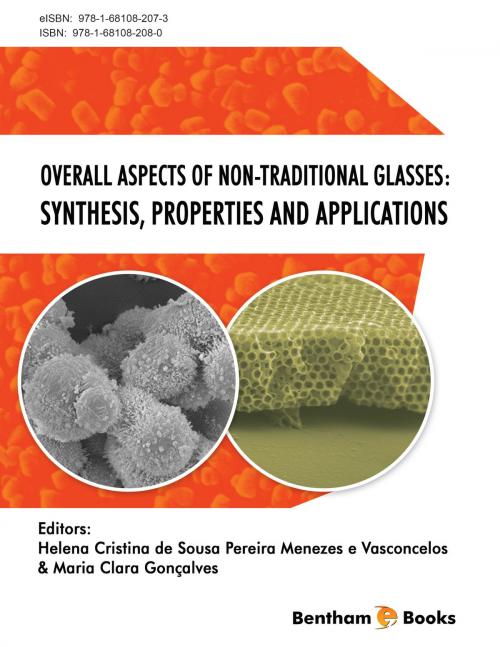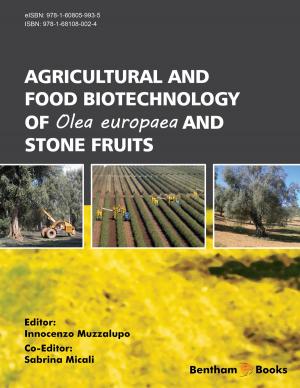| Author: | Helena Cristina de Sousa Pereira Meneses e Vasconcelos, Helena Cristina de Sousa Pereira Meneses e Vasconcelos | ISBN: | 9781681082073 |
| Publisher: | Bentham Science Publishers | Publication: | March 31, 2016 |
| Imprint: | Language: | English |
| Author: | Helena Cristina de Sousa Pereira Meneses e Vasconcelos, Helena Cristina de Sousa Pereira Meneses e Vasconcelos |
| ISBN: | 9781681082073 |
| Publisher: | Bentham Science Publishers |
| Publication: | March 31, 2016 |
| Imprint: | |
| Language: | English |
The considerable proliferation of new glasses during the second half of the 20th century (germanate, vanadate, bismuthate, tellurite, chalchogenide glasses, etc.) brought about the use the plural form of the 4 generic glass denomination, in order to be able to index each emerging glass family by its proper name, as well as to classify them methodically. Together with its great compositional versatility, the peculiar characteristics of glass (non-crystalline structure with short-range order, continuous network with no intergranular boundaries, isotropy, easy to be formed into a plastic state inside a wide temperature range) allow for a freedom of design and adaptability that few materials are able to offer. All these circumstances have contributed to the fact that, in the last seventy years, glass has acquired the multiple and varied appearance of its new families, without losing neither its original image nor its soda-lime-silica traditional composition, destined for the huge industrial manufacture of its conventional products.
The considerable proliferation of new glasses during the second half of the 20th century (germanate, vanadate, bismuthate, tellurite, chalchogenide glasses, etc.) brought about the use the plural form of the 4 generic glass denomination, in order to be able to index each emerging glass family by its proper name, as well as to classify them methodically. Together with its great compositional versatility, the peculiar characteristics of glass (non-crystalline structure with short-range order, continuous network with no intergranular boundaries, isotropy, easy to be formed into a plastic state inside a wide temperature range) allow for a freedom of design and adaptability that few materials are able to offer. All these circumstances have contributed to the fact that, in the last seventy years, glass has acquired the multiple and varied appearance of its new families, without losing neither its original image nor its soda-lime-silica traditional composition, destined for the huge industrial manufacture of its conventional products.















